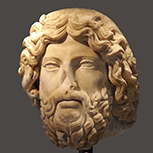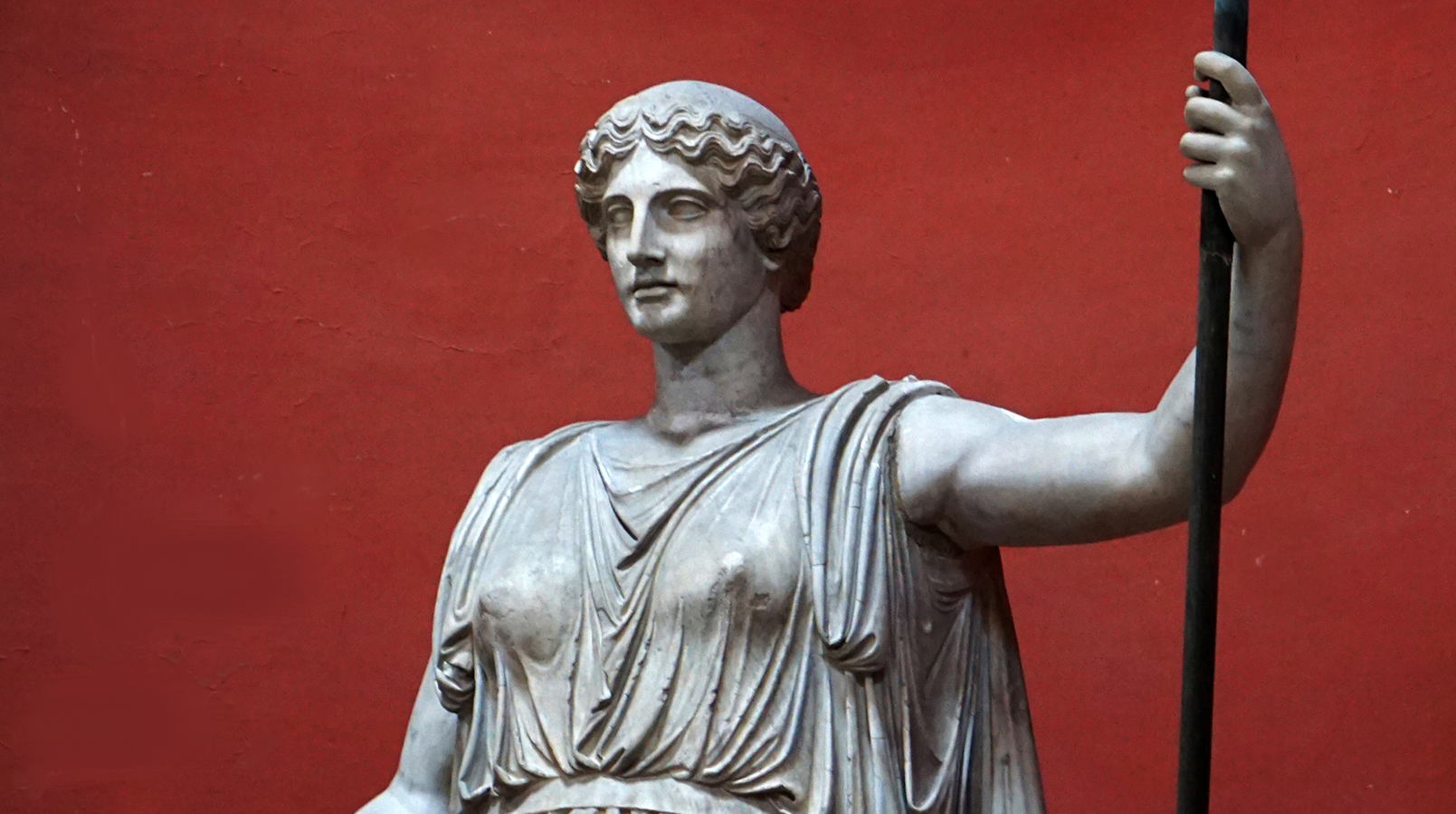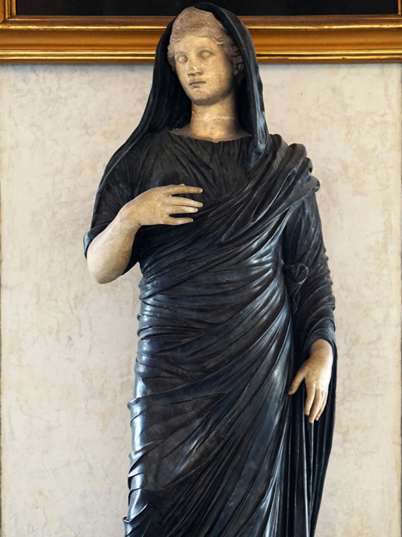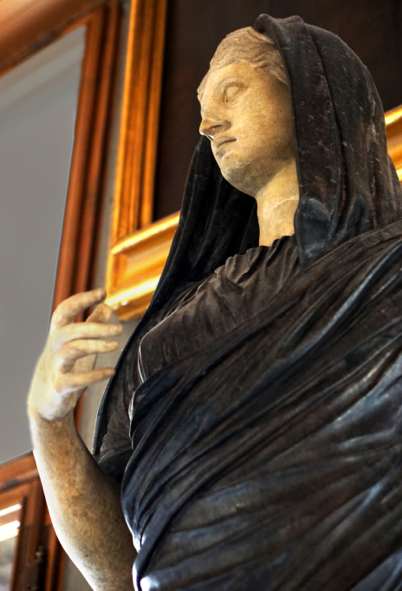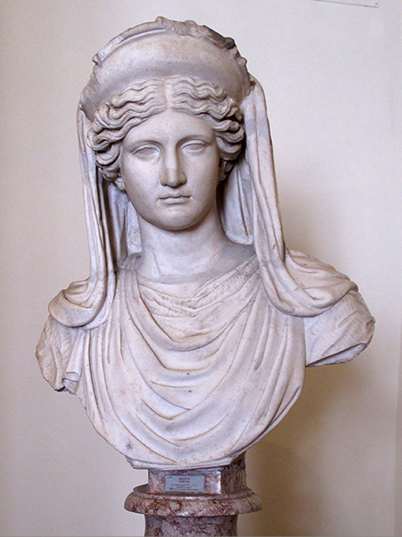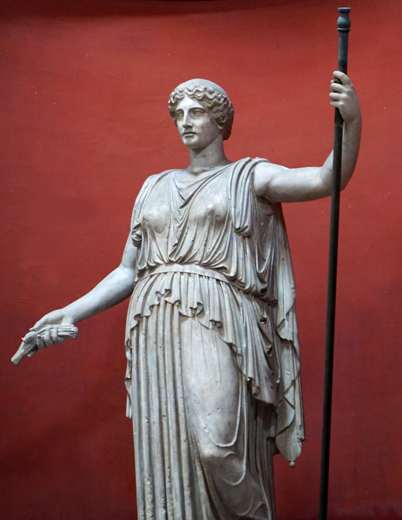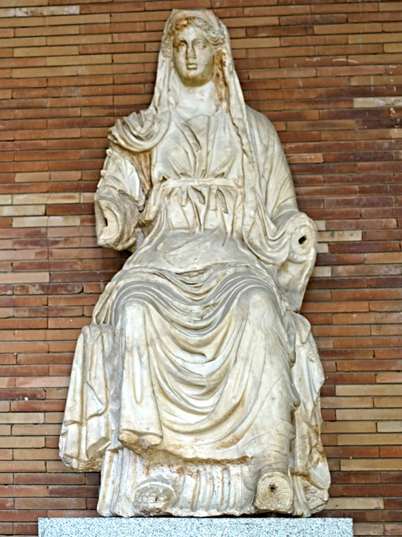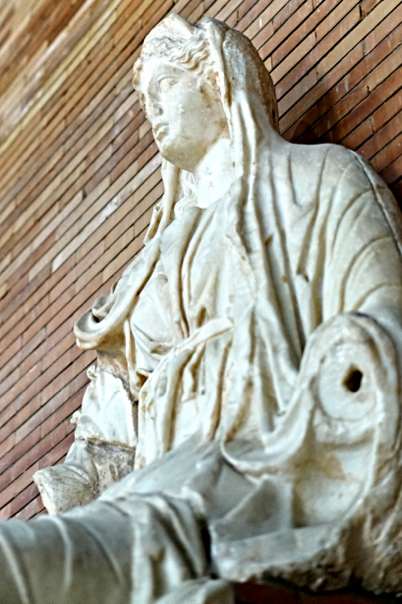The ROMAN CIVILIZATION
IMAGES OF THE ROMAN CIVILIZATION
greek & Roman mysteries
Demeter & Ceres
Though Demeter is often described simply as the goddess of the harvest, she presided also over the sacred law, and the cycle of life and death. She and her daughter Persephone were the central figures of the Eleusinian Mysteries that predated the Olympian pantheon..
The Romans referred to Demeter as Ceres
Roman goddess of fertility ..
Demeter and Persephone were the central figures to the Eleusinian Mysteries – a series of large and secretive concerts held every five years. These mysteries represented the abduction of Persephone by Hades in three phases. The “descent”, the “search” and the “ascent”. The main theme is the “ascent” of Persephone and the reunion with her mother.
the celebration of the Eleusinian Mysteries reached its heights in Hellenic times, their roots and essence predate the Olympian pantheon in which Gods assumed power and the previously powerful Goddesses were married off to them. In fact it is possible that the Mysteries originated in Goddess celebrating Minoan Crete: Homer’s Hymn to Demeter says that she came from Crete originally, and Diodorus of Sicily said in the first century BC that the Mysteries originated at Knossos on Crete. However no trace of the Mysteries has ever been found on Crete.
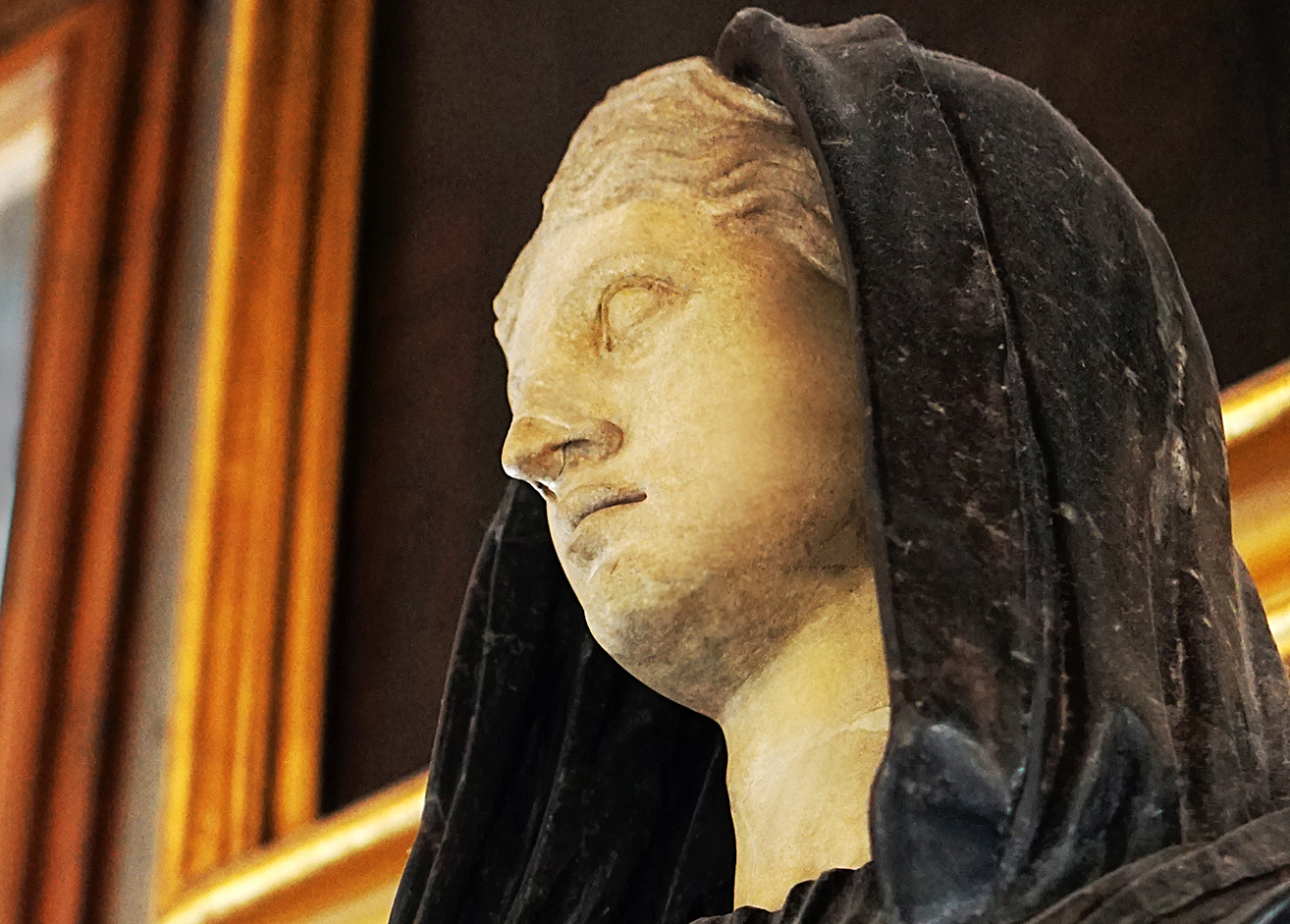
DEmeter and ceres
In Demeter’s name derives from the Greek words for “earth” and “mother.” The two parts of her name “de” and “meter” are Greek for the words “earth” and “mother” respectively, so her name literally means Earth Mother. This title which Demeter holds is appropriate, given her area of rule. In Roman mythology, Demeter goes by the name of Ceres.
In Greek mythology, the Greeks portray Demeter as the goddess of grain and agriculture. She presides over the harvest of crops and cares for the earth’s fertility and agriculture. Because of this, the Greeks considered her, along with Dianysus, one of the most important gods in the everyday lives of the people.
.CLICK ON IMAGES FOR TO IN LARGE ⬇︎
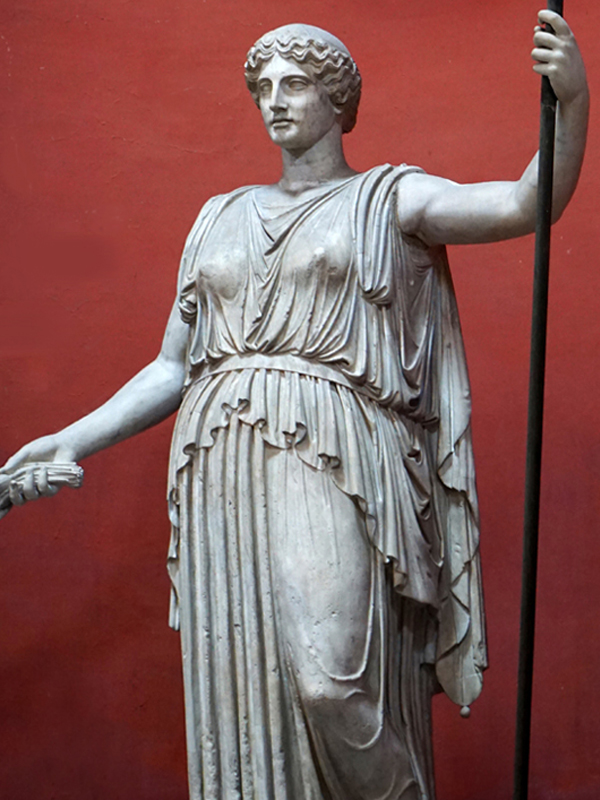
Demeter Goddess of Agriculture, Fertility, Sacred Law and the Harvest
DEMETER was the Olympian goddess of agriculture, grain and bread who sustained mankind with the earth's rich bounty. She presided over the foremost of the Mystery Cults which promised its intiates the path to a blessed afterlife in the realm of Elysium. Demeter was depicted as a mature woman, often wearing a crown and bearing sheafs of wheat or a cornucopia (horn of plenty), and a torch.
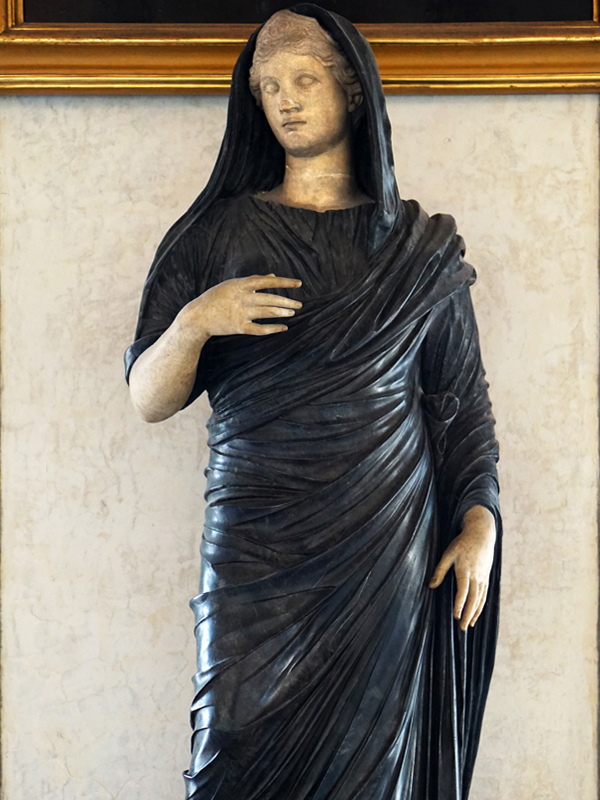
Demeter and Persephone were also the central figures to the Eleusinian Mysteries
According to the Athenian rhetorician Isocrates, Demeter's greatest gifts to humankind were agriculture, particularly of cereals, and the Mysteries which give the initiate higher hopes in this life and the afterlife. Eleusinian Mysteries predated the Olympian pantheon.
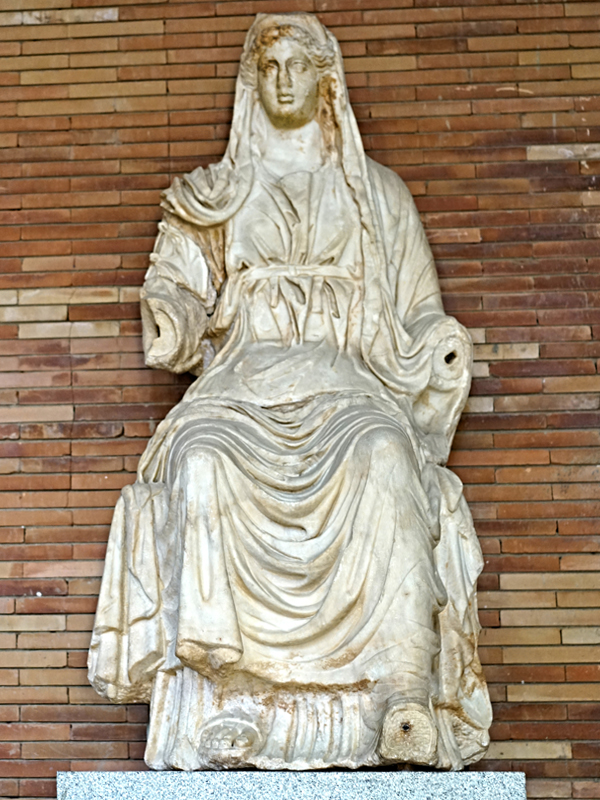
the ancient Roman religion, Ceres was a goddess of agriculture
The Romans referred to Demeter as Ceres. The Roman cult of Ceres was initially served by Greek priestesses, Greek cult of Ceres was imported to Rome in the middle of the third century B.C. Early Roman initiates at Eleusis in Greece included Sulla and Cicero; there after many Emperors were initiated, including Hadrian, who founded an Eleusinian cult centre in Rome itself
ARA PACIS AUGUSTAE South Procession
AGRIPPA, LIVA TIBERUS FIGURES
The south processional frieze on the Ara Pacis Augustae, Rome 13-9 BC,
Of the several figures on the Augustan Ara Pacis, one doubles as a portrait of the Empress Livia, who wears Ceres' corona spicea.
A important man, usually identified as Agrippa, stands at the center. Priests - flamens - stand with characteristic headgear (apex) in front of Agrippa, and members of the imperial household stand behind him the veiled woman may be Livia, wife of Augustus, and the man standing behind her Tiberius, although none of these identifications is certain and they continue to be debated.
The relationship between the reigning emperor, empress and Ceres was formalised in titles such as Augusta mater agrorum "The august mother of the fields) and Ceres Augusta.

the greeks & romans
TOP
